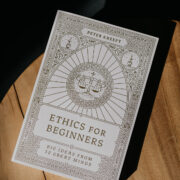Addiction. Treatment facilities. Recovery. Overdose. These words are more often spoken in whispers than out loud. To be sure, they express sensitive and often painful issues, but the circumstances they apply to are not uncommon. The Substance Abuse and Mental Health Services Administration (SAMHSA) reports, “In 2021, 46.3 million people aged 12 or older (or 16.5 percent of the population) had [a substance use disorder (SUD)] in the past year, including 29.5 million who had an alcohol use disorder and 24.0 million who had a drug use disorder.”
Add in at least one or two loved ones per suffering individual, and the numbers of those affected by addiction on a personal level get even more overwhelming. We’re talking about millions upon millions of our brothers and sisters for whom the realities and repercussions of addiction are part of daily life—and so, part of the holiday season as well. And yet, we don’t really talk about it very much, do we? Why not?
A Unique and Growing Apostolate
Over the last few years, I’ve had the opportunity to work with Keaton Douglas, founder and executive director of the iTHIRST Initiative, on a book concerning the crisis of addiction in our country and how the Church might better respond to it. iTHIRST stands for “The Healing Initiative–Recovery, Spirituality, Twelve step,” and it is a comprehensive program which focuses on spirituality in the prevention, treatment, and aftercare of those suffering from substance use disorders and their families. The Spiritual Companionship Training that iTHIRST offers through Seton Hall University is continually preparing those called to minister to this underserved and generally underheard population. Certified companions now exist throughout the United States, as well as in the U.K., American Samoa, and elsewhere. Keaton’s goal is that anyone can knock on the door of any Catholic Church—or better yet any Catholic school, hospital, or other institution—and find someone ready to listen and to offer recovery resources.
The Church is called to respond to those on the margins, those who are undervalued, those who have been forgotten.
I’m billed as co-author of our book, The Road to Hope: Responding to the Crisis of Addiction, but in a lot of ways I’m also the primary audience for the book. I know addiction is a problem. I know people and families who are struggling. I know people who have died. I also know there’s more I could and should be doing, but before I engaged with this project, I wasn’t sure where to start.
I’ve learned a lot from Keaton—I am always learning from Keaton, who, for the record, does not have personal experience with addiction—but the simplest and one of the most profound things I’ve learned from her is simply the importance, or better the necessity, of listening.
Learning to Listen
If we want to help our brothers and sisters who are struggling with the realities of addiction, we need to (re)learn how to listen. It doesn’t need to be said that we 21st century Americans in particular are distracted by many things. Even once the sun has gone down, we rarely go an hour without some kind of digital input, some ping on our phones, some vibration on our watches.
These “conveniences” have made it increasingly difficult for us to sit in uncomfortable circumstances. We are strangers to stillness. We need to strengthen our skills of patience and perseverance, as much for the good of our own souls as for those around us who are suffering tremendously—and suffering even more so because they rarely find reprieve in a friend, a neighbor, or a companion.

To be Christ to these individuals (whom, again, we all know to some degree), we have to be willing to listen to those who are suffering. Listen to their family and friends. Make yourself available. Make the sacrifice of your attention. Don’t let the fear of being hurt, of getting involved in something messy, keep you from being Christ to someone in your sphere who so desperately needs that companionship, and who, unfortunately, isn’t finding such mercy or compassion anywhere else.
The “Apostolate of the Ear”
Pope Francis calls this “apostolate of the ear,” and it’s been defined previously at Word on Fire as “listening before speaking in a way that assures others that when we do speak, the joys, hopes, concerns, and heartfelt needs of the other have been understood.” People need to be heard. They need to know they are not carrying such heavy things on their own. They need to know that someone cares about them and their loved ones.
The Church is called to respond to those on the margins, those who are undervalued, those who have been forgotten. And yet few people struggling with their own addiction or their loved ones’ addiction think to turn to the Church as an institution for aid. Again, I have to ask, why not? Then again, the Church isn’t just an institution. It’s all of us. How can those of us who are members of the Church Militant improve the care we offer to those who aren’t being served? We can open the door and then we can start to listen.
You don’t need a certification or a training course to open your heart.
For far too long, addiction has been taboo. It’s a topic that we can all relate to in one way or another, but that we don’t know how to talk about. We don’t want to hurt feelings. We don’t want to make things awkward. Or maybe we have our own judgments about particular situations (which might stem from our own earlier experiences) that we need to reexamine. This approach of avoidance, of thinking someone else will do the hard work, tends to do more harm than good.
The more we keep a topic quiet, the quieter the space around it becomes. We can only start to peel that back that reticence around the subject by being unafraid not only to talk to and about those suffering, but also to listen to them.
You might be unsure what to say to someone in your life who has a family member struggling with addiction, or worse, who has died from causes related to it in the last year. But really, you don’t need a certification or a training course to open your heart. As Keaton often says, as Christians living as children of God, aware of His tremendous mercy and ineffable love, we already have everything we need to serve those who are suffering.
Maybe you don’t need to say any more than, “How are you feeling about Thanksgiving this year, considering what’s going on?” Send a text. Make a call. Stop by and take a friend out for a walk. Have a Mass offered for the individual or the family and write a quick note offering your prayers and time to listen in the card before you deliver it. Yes, it will probably be painful. It will probably be kind of awkward and messy. But once you get started, it gets easier.
Willingness to listen to another’s pain, to stand beside them in trying circumstances, might be the greatest gift you give this year. It will cost you something, for sure. But if we truly are disciples of Christ, we will give without counting the cost.
To learn more about helping those struggling with addiction, read The Road to Hope: Responding to the Crisis of Addiction, available where books are sold. To become an iTHIRST companion in your community, enroll in Spiritual Companionship Training, offered virtually through Seton Hall University.
